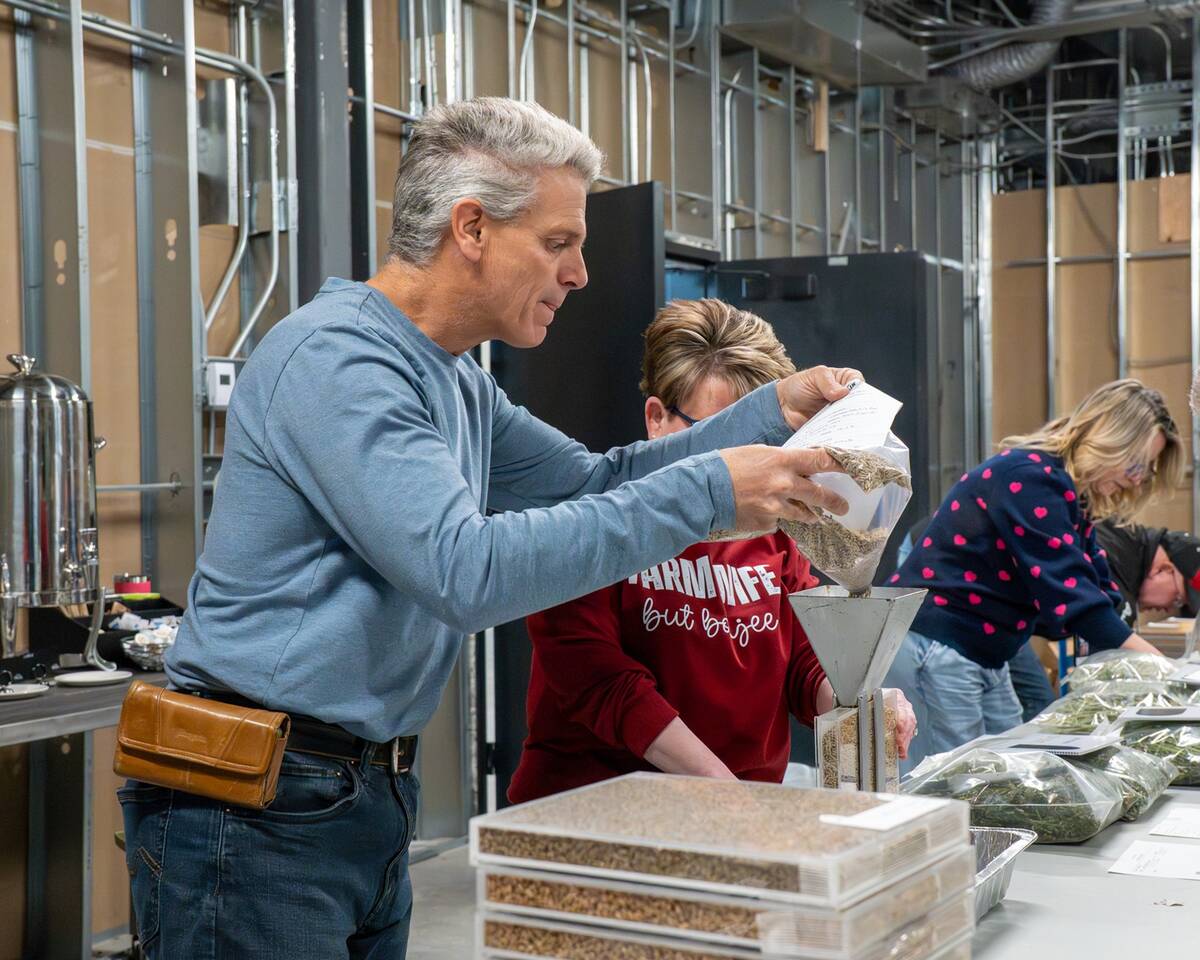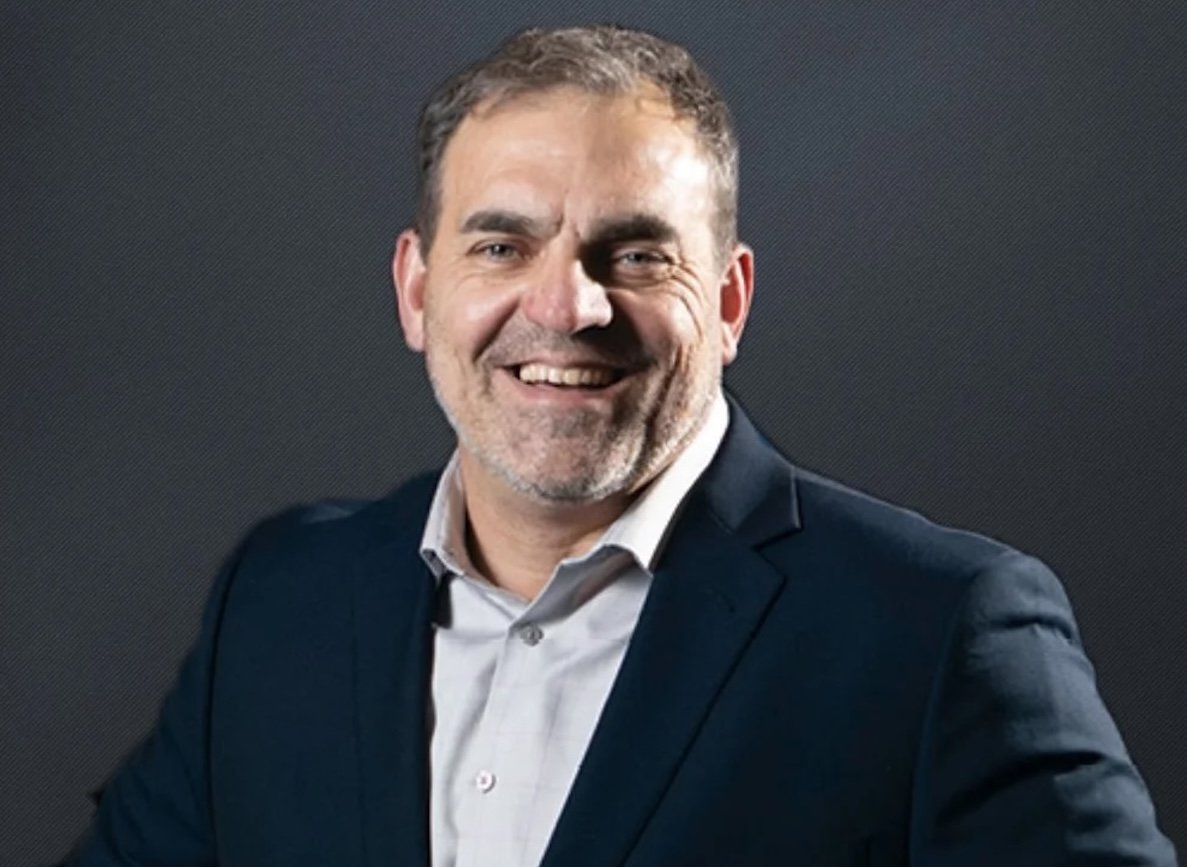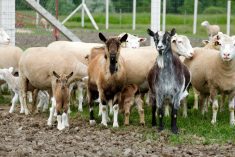Men are starting to learn and talk more about mental health, but there is still a long way to go. Merle Massie, executive director of Do More Ag, hosted a virtual conversation with Bob Wilkie, president and founder of I Got Mind.
Wilkie grew up in Calgary, where he lives today.
“Like many young men in Canada, I had a dream of becoming an NHL hockey player, and that’s where I focussed all my efforts and energy. I was fortunate to have some success at an early age, and get really close to living my dream,” he said.
Read Also

North American Seed Fair continuing a proud 129-year-old agricultural tradition
One of North America’s longest continually lasting seed fairs makes its 129th appearance in southern Alberta.
At 17 years old, Wilkie moved to the Prairies for hockey. He lived in rural Saskatchewan and played for the Western Hockey League’s Swift Current Broncos. As a young man growing up on the Prairies in the 1970s and 1980s, he was never taught to express his feelings.
For the last 20 years, Wilkie worked with I Got Mind, which helps people understand what happens to them after trauma, or when they are dealing with mental stressors.
On Dec. 30, 1986, the Swift Current Broncos were on their bus on the way to Regina. About five minutes out of Swift Current, the bus hit a patch of black ice and went off the road. The bus flipped over. Four Swift Current Broncos perished that night.
“For those of you who were around at the time, and those of us who’ve read about it since, we know a traumatic event like that can have real impact,” said Massie. “I think your story resonates even more strongly again nowadays, because we have a slightly more recent (Humboldt) Broncos tragedy,” she said.
Wilkie said none of the surviving players knew what to do after losing their teammates.
“We didn’t know how to talk about it. It was a very difficult time. It’s very dark. Nightmares, reliving the trauma, having to get back on the bus 10 days later. All those things were extremely difficult for all of us, not just the players, but the coaches, the fans and the billets,” he said. “It impacted everybody.”
“I think that’s what I’ve learned about trauma, is that it may have happened to me, but it still can affect you, and until we understand that it’s hard to create those connections with people. What we went through in Swift Current, it taught us a lot about the darkness and where it could take us, but most importantly, how can we feel better in these moments?”
Wilkie found it difficult to continue after the accident.
“The darkness, being alone at the night was really tumultuous,” he said. “In one minute, I could feel so excited about the path and the direction and what I was learning, and then in the next, fear and worry if I could pull it off.”
Love helped Wilkie along his path of healing. He met his wife and had a daughter.
“When I knew I was going to be a father, that’s when I knew I had to work hard to get my life together, because if I was going to be a role model and responsible for raising this young life, I needed to do better.”
He began to find ways to rebuild, through conversations, books, seminars and training.
By starting to help people, he learned many people do not have a healthy perspective of what they have.
He practiced the attitude of gratitude and would write down three things he was grateful for every day when he woke up.
“Was it easy?” he said. “It was just different. I try and tell people not to look at it as difficult because it’s not. It’s just different. When we can adopt that, it’s easier to take those steps forward in the moments they are presented to you.”
Wilkie said reflecting in the morning helped him see the good things in his life, including relationships, opportunities, how he felt, and the places he got to go and see.
It changed his mindset and helped him when days were challenging.
Culture change
Massie asked Wilkie what it was like to cultivate a culture of wellbeing.
“It takes a commitment of everybody you know trying to be the best version of themselves. If we’re truly going to change the culture, then we need to understand and we each need to do our part. The only way healthy communities are built is people working hard at being healthy themselves,” he said.
Some people want to help others but are not in a good space to help.
“If we’re going to build a healthy culture, then we have to do the work ourselves, and when we do that, it’s amazing the impact that it starts to have on other people,” he said.
Wilkie played hockey for 14 years and was 30 when he retired. He had no other training.
“I tried a couple of things, and it was really when I was coaching young hockey kids that I started to see where my trauma started, and the disappointment and the struggle. I started working with these kids and having different conversations about their attitudes and their mindsets and how they communicated. I started to see a significant change,” he said.
Wilkie trained as a life coach and travelled across North America, speaking to a variety of audiences about mental wellness.
Wilkie eventually assembled a team of 15 which includes of psychologists, mental health clinicians, and training facilitators to join I Got Mind.
“These are experienced people, whether they are retired hockey coaches, or teachers or business leaders. We have young athletes coming back in to work with the even younger athletes,” he said.
“It’s been a real evolution in being able to support people who need different things,” he said.
Wilkie said his sessions with groups start with being vulnerable and sharing stories and experiences. This attitude is practiced with anyone from youth sport teams to community leaders.
“It’s the vulnerability that starts different conversations, giving people permission to talk about what they struggle with and how it affects them,” he said. I Got Mind was actively visiting teams after the Humboldt Broncos crash, touring communities and talking about mental health. The pandemic put an end to that.
I Got Mind worked with Trilight Entertainment to make a documentary accident. The documentary, which is based on a book of the same name is “Sideways; a story of trauma, resilience and healing.”
“It helps us even more in the community and starts conversations that need to happen,” said Wilkie
He hopes people are inspired by the story, which shows what the players went through, but also how they were able to be resilient and become Memorial Cup Champions two years later.
“Trauma happens to all of us. We live in a chaotic world,” he said. “When we see people do amazing things and overcome great things, we want to listen to them, because we’d like to do that ourselves,” he said.
“I think that people need to understand that you don’t ever fully recover from things that happen to you,” he said.
I Got Mind has shown the documentary in various communities and have gotten great reactions. They’ve done a showing with the Drumheller Dragons hockey team and other organizations that want to bring them in.
“When communities find out, and they think they could benefit, they just reach out to us at igotmind.ca and then we work together to get people out to watch the story,” he said. People can check the website to find out how they can watch the documentary online, available November 4.
“When we are connected, we can communicate and when we can communicate, we can solve problems, and those are three of the most important things we need to do,” he said.
I Got Mind has created four special scholarships to remember the boys who perished in the Swift Current Broncos accident. One of them is an agricultural scholarship, to honour player Brent Ruff, who grew up in Wetaskiwin and whose family was heavily involved in agriculture. More information on the scholarships can be found online.
I Got Mind has also created an online community on their website, and can be followed on social media at Facebook, LinkedIn and Instagram. Organizations who wish to book a visit from Wilkie can book him through the organization’s web site.















